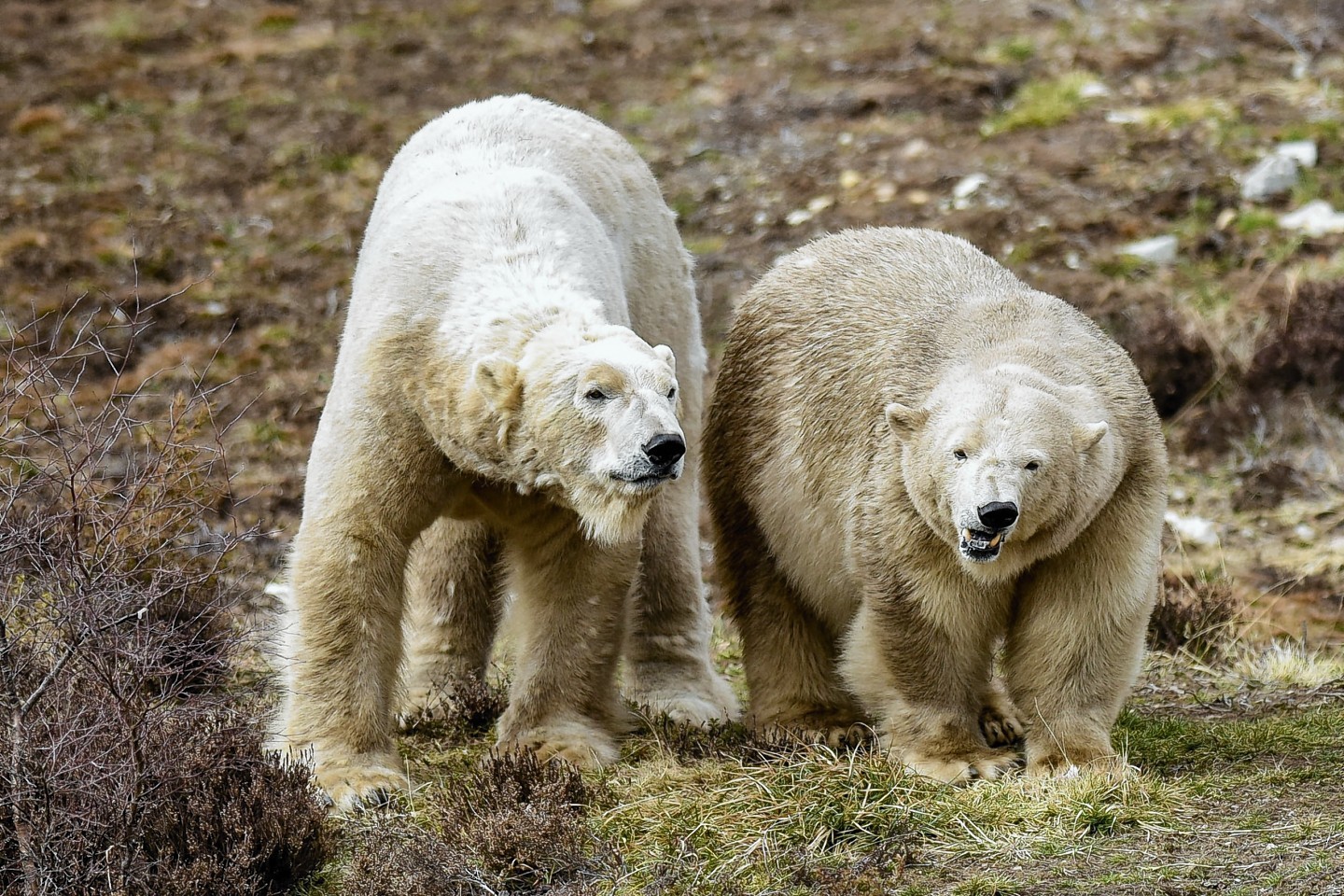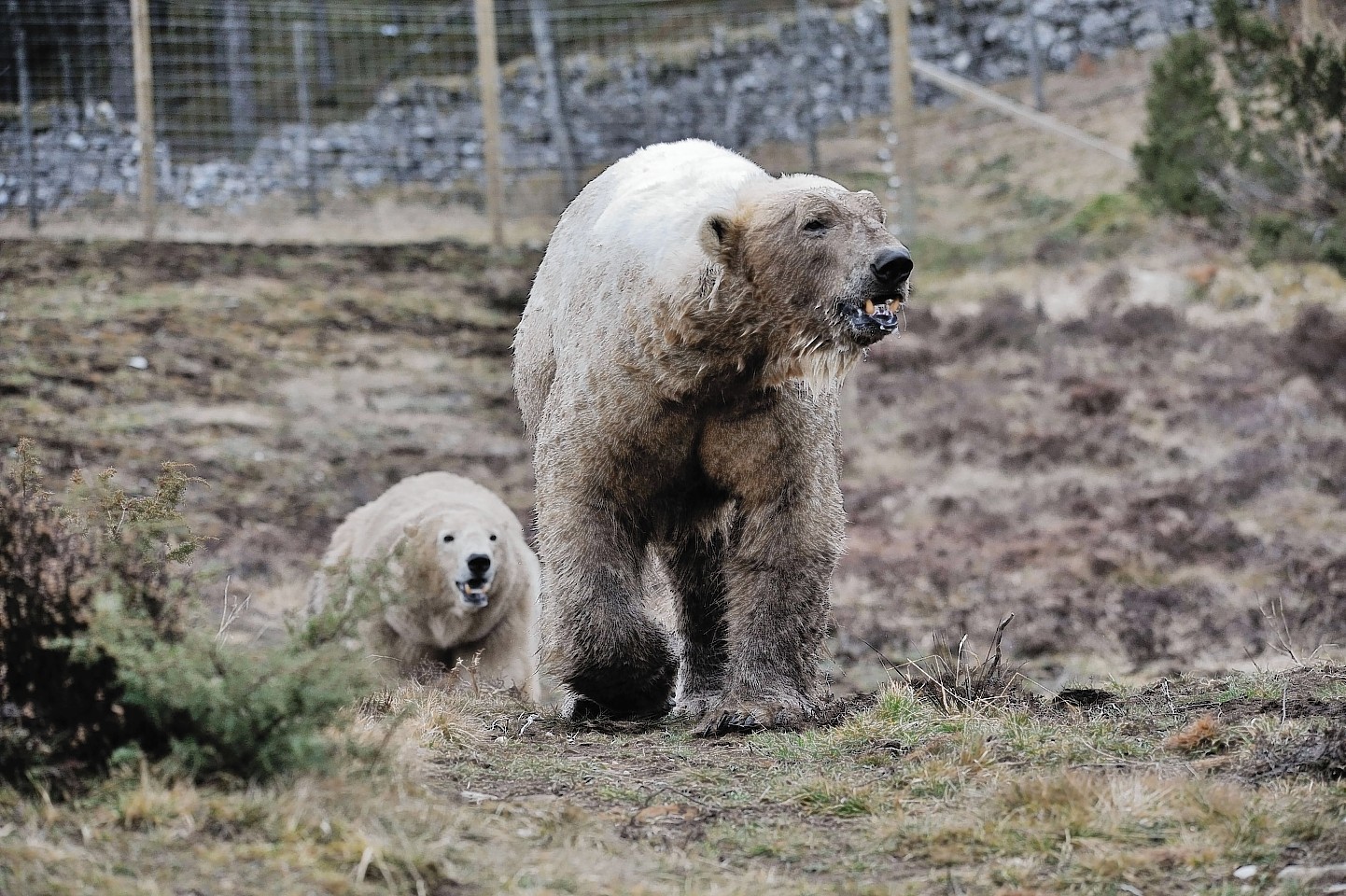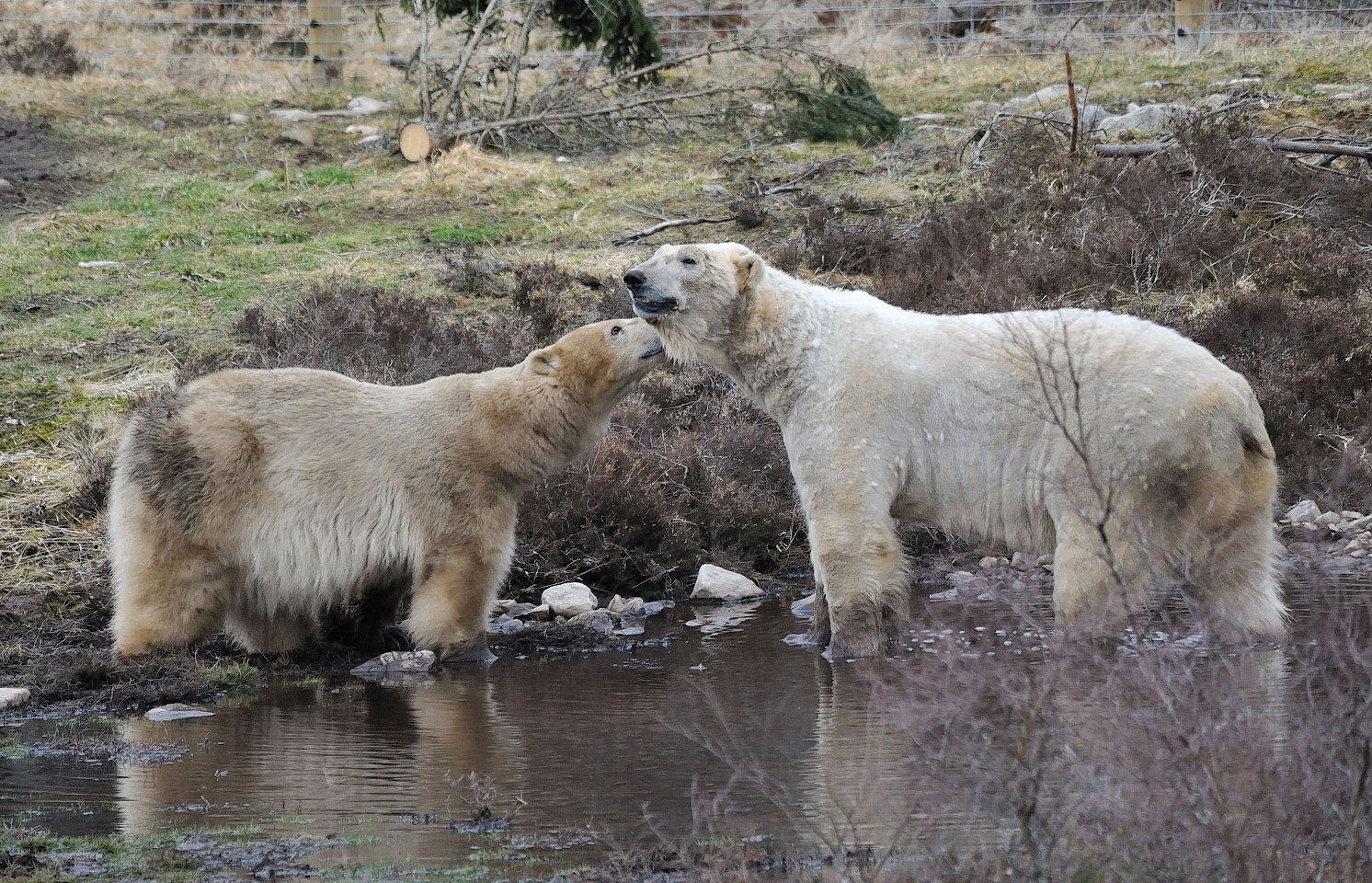Polar bears Victoria and Arktos have been mating at their Highland Wildlife Park home, with keepers saying the pair “have really warmed to each other”.
The breeding programme at the Kingussie attraction saw the bears meet properly for the first time at the weekend, when Arktos moved into Victoria’s enclosure.
Mating has since occurred “on many occasions” and the pair will continue to live together for the next week or two.
If successful, the UK’s only female polar bear would be expected to fall pregnant at the end of summer and any cub would be born at the end of the year.
The animals were tentatively introduced on March 15 when Arktos, the elder of the park’s two male bears, was moved into an enclosure adjacent to Victoria’s.
The Park said: “Keepers were delighted to see the bears take to each other straight away, with lots of head bobbing, bouncing and vocalisations.
“The new pair were so keen on each other that they slept at the fence line and repeatedly tried to touch. On Saturday morning the two bears met properly for the first time as Arktos went to live temporarily in Victoria’s enclosure.
“Mating has since occurred on many occasions and Arktos and Victoria will continue to live together 24 hours a day for the next week or two, mimicking what would occur naturally in the wild.
“Sleeping side by side, following each other around and resting their heads on each other – the two polar bears have really bonded.”
Head carnivore keeper Vickie Larkin said: “Their introduction couldn’t have gone any better.
“Both polar bears have really warmed to each other and all the signs are really positive. From the first moment they met, Arktos has been really gentle with Victoria and their bond has been immediate.”
Female polar bears only release an egg after initial mating occurs and they also practice delayed implantation, where the egg does not implant into the uterine wall until some months later.
This means she could potentially give birth in December to January.
Chris West, chief executive of the Royal Zoological Society of Scotland (RZSS), said: “Listed as Vulnerable on the IUCN Red List of endangered species, this is the first time in 25 years that polar bear breeding has successfully taken place on UK soil. This is something to be celebrated.
“At RZSS we have a duty to help protect the future of this magnificent species, and our polar bears benefit from the largest enclosures in the world and expert husbandry that is second to none.”


